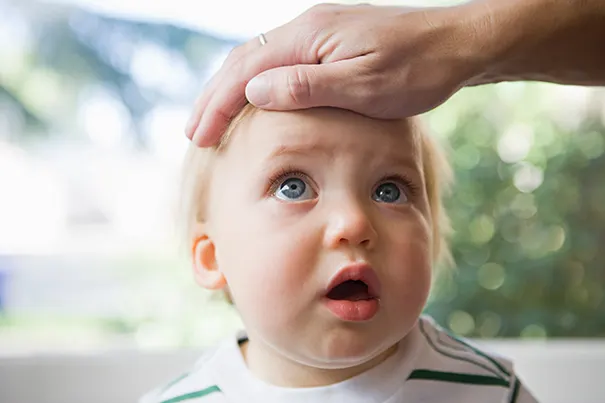Coughs and Coughing in Babies and Toddlers
Coughing is the symptom that most frequently leads parents to seek medical attention for their children. Most of the time it can be managed by simple home treatment rather than using medicines or cough remedies.
What causes a cough?
When the nerve endings in the throat, windpipe or lungs sense the irritation, a reflex causes air to be forcefully ejected through the passageways.
The most common irritant is mucus. When a lot of it is secreted – during a cold, for example – this fluid accumulates in the back of the throat and can trigger a cough. Coughs are usually associated with respiratory illnesses such as colds, bronchiolitis and flu, but can also be caused by allergies, swallowing a foreign object.
Why don't all coughs sound the same?
Most often, the location of the infection determines the sound of the cough. For example, an irritation in the windpipe or bronchi sounds deeper and raspier than when it's located in the larynx. Most common colds are accompanied by a dry or wet cough that may last even after other symptoms are gone. It’s important for you to understand the type of cough your child may have, to be prepared know what to stock in your medicine cabinet.
When does a cough need medical attention?
Call your healthcare provider immediately in the following cases:
if your infant is younger than three months, coughing, has a fever of 38 °C or higher, or is breathing erratically;
if a child older than 3 months has a fever of 38 °C or higher that lasts for more than 48 hours;
if coughing makes it difficult for your child to breathe;
if your child is breathing fast – 40 to 50 breaths per minute – and she 'sucks in' between the ribs with each breath – if coughing is painful, persistent and/or accompanied by a 'whooping' sound;
if your child coughs so hard that her lips turn blue or dusky; coughing appears suddenly and is associated with fever;
if coughing begins after your child chokes on food or another object;
Treating a cough
Since most coughs are caused by viral infections, antibiotics are not usually recommended for treating it. Let it run its course. A viral infection can last for two weeks or longer. In 2008, the U.S. FDA issued a Public Health Advisory strongly advising against giving infants and small children over-the-counter cough and cold products. In any case, there's little evidence that these products are effective in children, so avoid them unless your healthcare provider specifically recommends it. To know more about baby care read the following points:
Keeping your coughing child comfortable
Most coughs will go away on their own, but until then, you can do the following to help him feel more comfortable:
Encourage extra fluids to keep the airway moist and your child well hydrated.
Turn on a humidifier or vaporiser, especially if your home is very dry.
Sit with your child in a closed bathroom while a hot shower is running; this can loosen and ease any cough, especially before bedtime.

